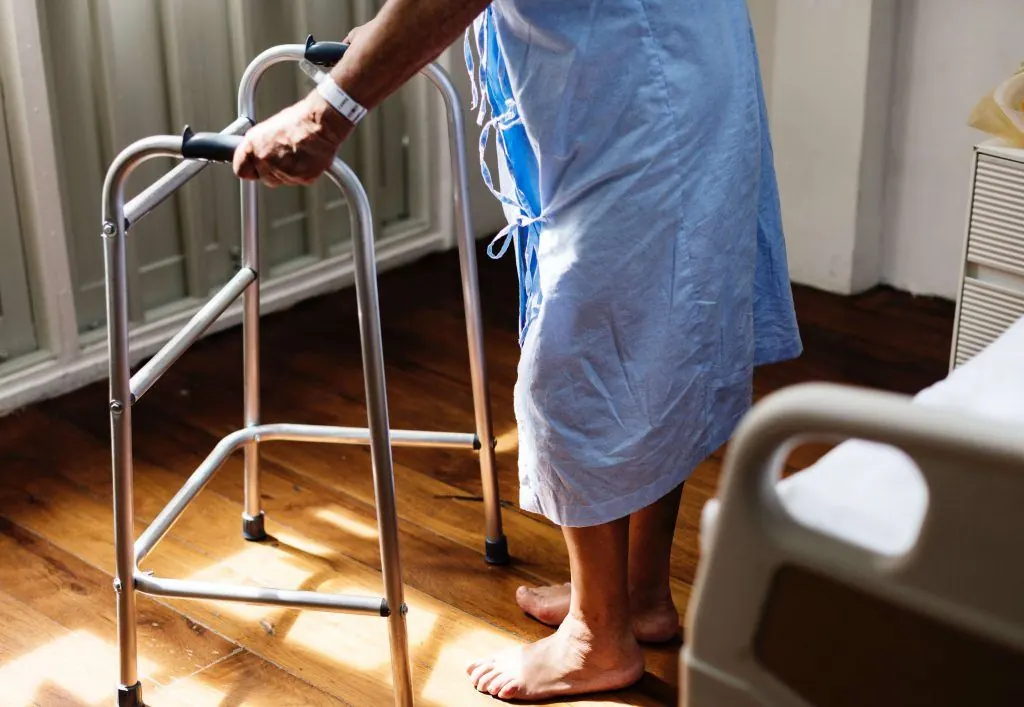Problems with Medical Hardware of the Hip
I’m Ed Smith, a Personal Injury Lawyer in Sacramento. As people age, the cartilage that cushions their hips and knees will start to degrade. If this becomes a problem, they could need the joints replaced. Medical hardware has come a long way over the years. Unfortunately, these implants are not perfect and can have problems from time to time.
Why Does Someone Need a Hip Replacement?
A hip replacement is an advanced medical device that takes the place of a biologic hip. There are many reasons why someone would need a hip replacement:
Lack of Cartilage: Over time, the cartilage cushion between the head of the femur and the wall of the hip can become worn down. At first, this erosion can be managed with pain medications. However, over time, a hip replacement could become necessary.
Bone Death: There are small blood vessels that carry oxygen and nutrients to the head of the femur. The bone can become damaged if this oxygen or nutrient supply is compromised. If the head of the femur loses its blood supply (called avascular necrosis), the hip will need to be replaced.
Fractures: If someone has a severe hip fracture, it is possible that the bones did not heal properly. This is called malunion. If the bone fractures heal poorly, severe pain and mobility problems could result and lead to a hip replacement.
Watch YouTube Video: Hip Replacement Animation. This animation video shows how a hip replacement works. It also explains when a hip replacement surgery is necessary.
What are the Complications that can Develop?
Several complications could result from a hip replacement. Recently, a team of medical professionals published an article reviewing the rates of these complications. Some of the common complications include:
Infection: According to the medical records compiled by hospital professionals, around 15% of their patients who needed a hip replacement acquired an infection. Despite the surgeon’s best efforts in using sterile technique, infections can still happen. Symptoms of an infected hip include:
- Fever (temperature of over 100.3)
- Pain around the replacement site that gets worse with contact
- Loss of range of motion
- Swollen hip at the surgical site
- Red hip
- Drainage from the surgical site
Blood Clot: If a blood clot forms in a vessel, it could lead to devastating consequences. When a patient has difficulty moving after surgery, the blood can pool and stick together. This can form a blood clot. According to statistics from the Centers for Disease and Control Prevention (CDC), about half of all blood clots in the country occur while a patient is in the hospital following surgery.
Loosening of Implants: Based on the results of the study, close to half of all hip implant revisions occur because the hip implant either becomes loose or dislocates completely.
How are these Complications Fixed?
Depending on the complication, there are different treatment options to consider. If a hip implant becomes infected, it will need to be replaced. Because a hip replacement has no blood supply, antibiotics won’t get rid of the infection. Therefore, an infected hip implant requires a trip to the operating room for a replacement. The same treatment is used for a dislocated or loosened hip implant. If a blood clot has formed in or around the implant, a variety of treatments could be used. These include:
- Supplemental oxygen
- Beta-blockers
- Pain medication, such as morphine
- Nitrates to expand the blood vessels
- Aspirin and clot-busters
These treatments are essential for preventing the clot from causing a heart attack or a stroke.
Assistance with Medical Hardware Problems
Complications with medical hardware can be extremely stressful for families. When someone has problems with an implant, pacemaker, or other medical devices, this could mean another trip to the hospital. These complicated issues deserve the attention of an attorney who can help with:
Medical Records: A trained lawyer knows how to go through the medical records and translate jargon for the family. This can help people better understand what their options are.
Insurance Claims: If insurance companies deny claims, an attorney can fight for the family to get reimbursement. They know how insurance companies operate and can use this inside knowledge for the benefit of a family in need.
Investigations into Medical Device Malfunction: A lawyer can investigate the cause of the device malfunction on behalf of the family. Sometimes, there might be details of a medical device malfunction that could have been initially overlooked.
Related Articles
Personal Injury Attorneys in Sacramento
I’m Ed Smith, a Personal Injury Lawyer in Sacramento. If you or someone you love has problems with a hip replacement or other medical device, call me at (916) 921-6400 or (800) 404-5400 to receive free, friendly legal advice.
I am a trial lawyer in the Million Dollar Advocates Forum.
You may take a look at some of our past verdicts and settlements here.
You are also welcome to browse Yelp, Avvo and Google to see reviews from our past clients.
Image Attribution: Rawpixel.com
:dr cha [cs 857] cv

